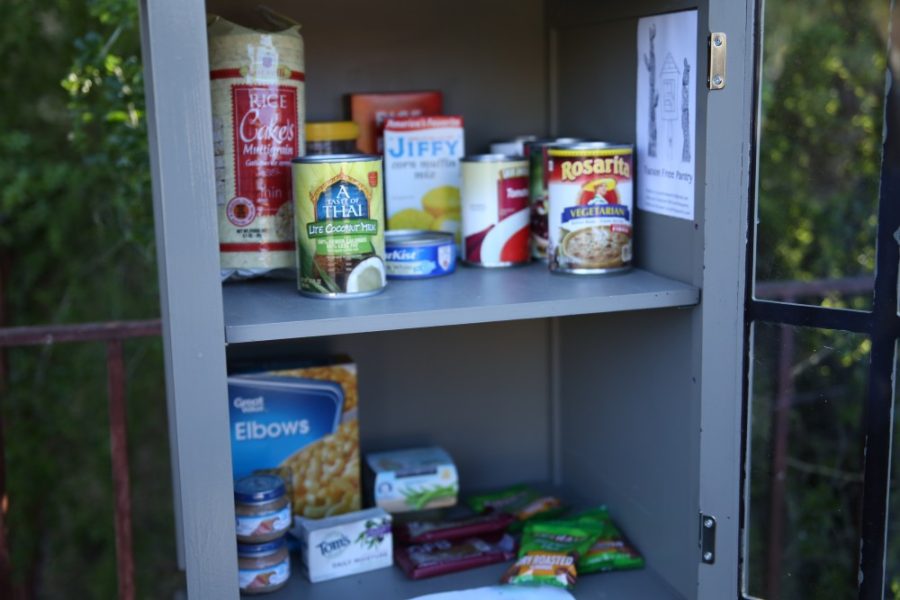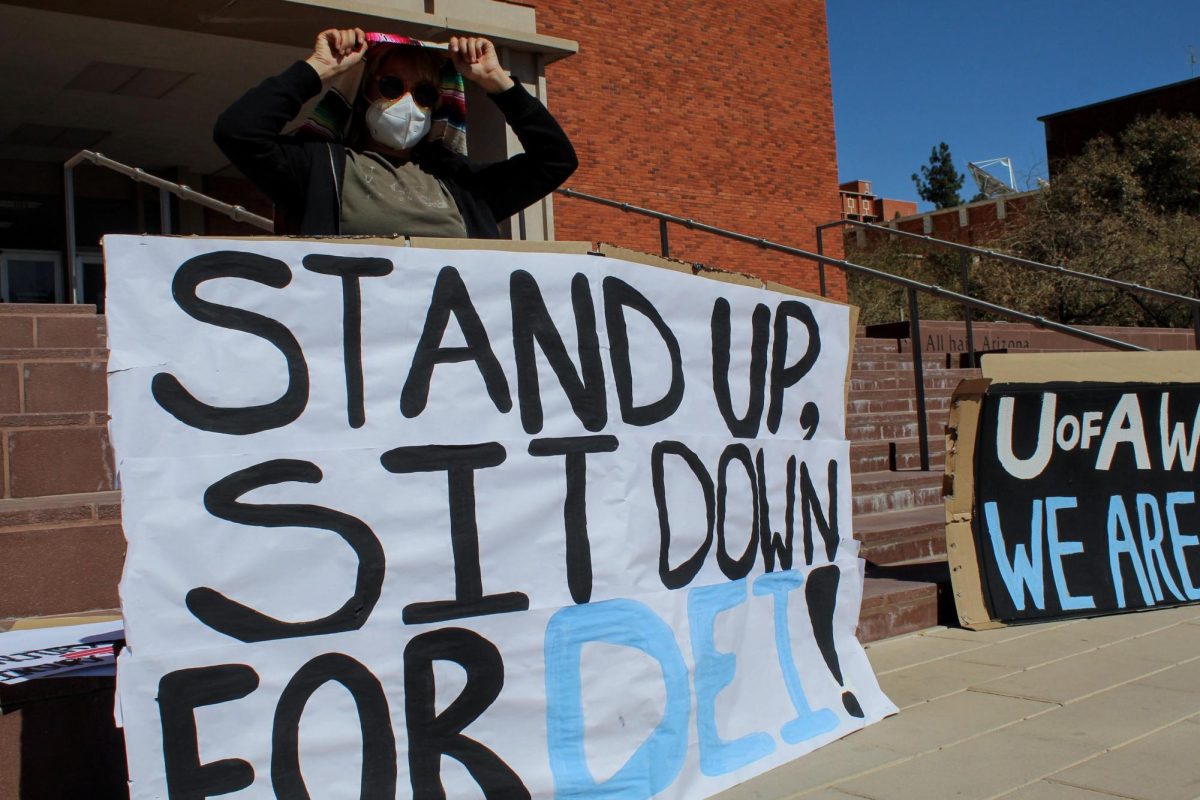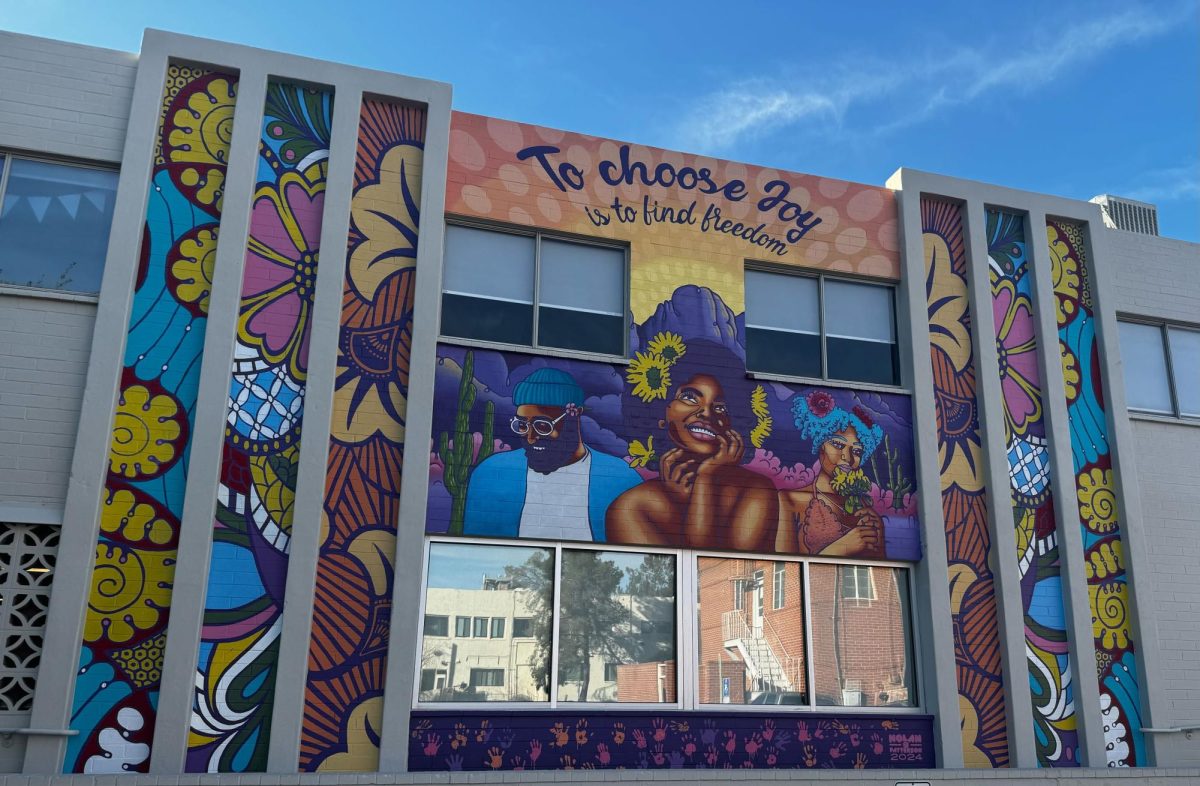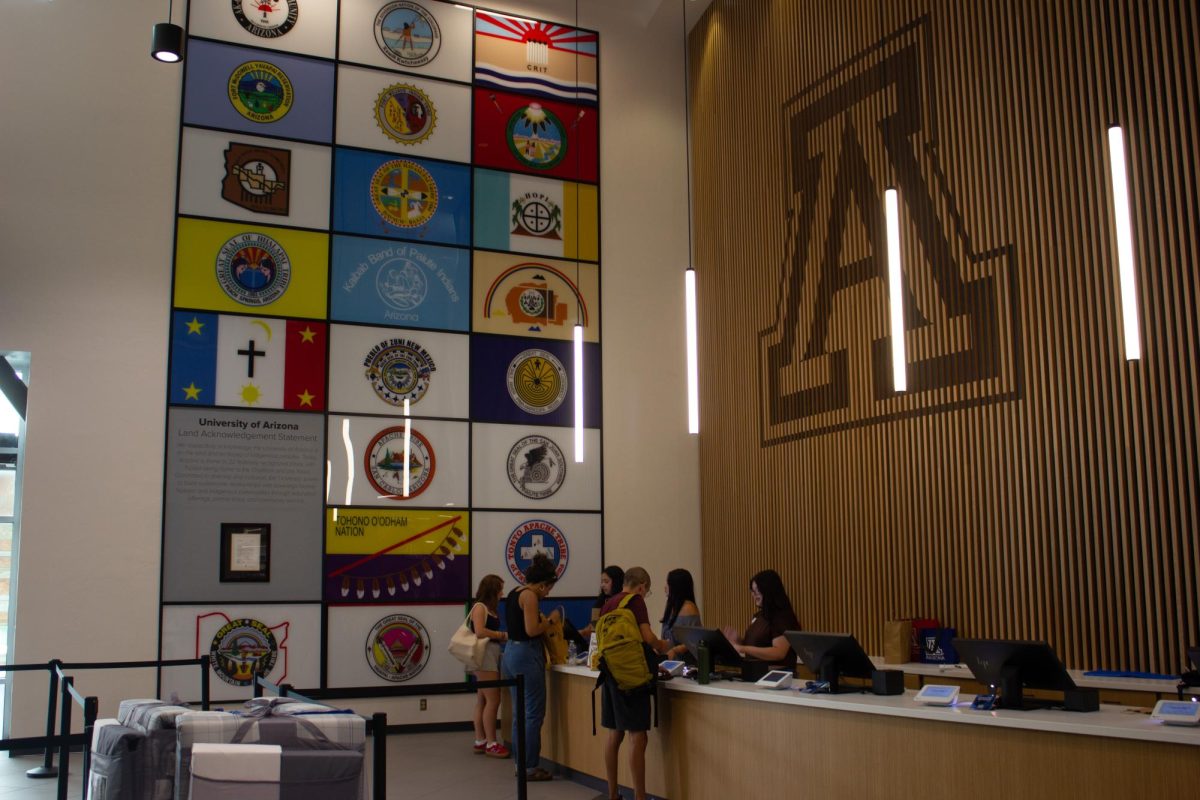Tucson Free Pantry is on a mission to fight hunger and food waste in Southern Arizona.
The TFP slogan, “take what you need, give what you can,” is attached to each of the 24-hour pantry locations in the Tucson community.
Local farms, community members and the TFP team sustain each pantry with food, school supplies and toiletries.
According to TFP Director, Chaparrelle Mogavero-Cline, the project was started because of the food security gap in Southern Arizona.
“Many people skip meals and aren’t able to get what they need,” she said. “This is not going to solve the problem, but it’s going to help with hunger, food waste and bring the community together.”
The team builds a small pantry in a Tucson neighborhood and, along with the community, fills them for anyone who might need some assistance.
RELATED: Video: Urban agriculture: feeding the future
“When we approach the pantries, there’s a concern that it might not be filled, but that’s never the case because community members have been filling them,” Mogavero-Cline said. “With a regular pantry you need to submit an application and show up at certain hours.”
Blake Harding, TFP adviser and board member, added that TFP and standard food banks differ in accessibility.
“Some barriers in accessing traditional pantry, soup kitchen and food welfare models include shame, limited hours and the requirement for an ID card or extensive paperwork,” he explained. “Since with TFP, none of these are barriers, it serves a real diverse need.”
UA student and TFP Outreach Coordinator Peyton Anne Prater agreed.
“Instead of having a formal location, its just a small pantry that’s set up in a neighborhood so people can just come and get or drop off food whenever they want to,” she said. “TFP has unlimited access.”
The team hopes to boost the number of pantries within the next year.
“Right now we have a partnership with three private places,” Mogavero-Cline said. “We’re building more.”
Prater added that the mission doesn’t only include Tucson, she said they want to engage in a national effort to make them available.
TFP members plan to build the model further by connecting community partners, stakeholders and others outside the community to duplicate this free public pantry model in other communities.
The team explained the idea has even spread to Tennessee.
“We’ve received many inquiries from others in several states such as Washington and California,” Harding added. “It’s very exciting to see incredible interest in the project.”
As is the case with most non-profit organizations, TFP faces some challenges.
RELATED: UA Campus Pantry serves over 130 people each week
“In particular, with utilizing and leveraging scarce resources in bootstrapping the TFP model in attempting to have the highest most positive impact possible,” Harding said. “But we have received significant funding interest from private donors and have a pending grant receipt from a community arts foundation in Tucson, all of which will be put to hard work to support TFP’s mission.”
However, the team’s successes have far outweighed their setbacks.
“We’ve been very surprised in the outpouring of support and excitement for the TFP,” Harding said. “The community has really gathered around the concept.”
UA students are encouraged to use the pantries as well, since many college students face food insecurity.
“It will reach UA students since it’s so close to campus,” Prater said. “It’s accessible for people to donate and take food. You can just bring food or take it freely.”
TFP isn’t limited to those with extreme hunger and need.
“TFP is for everyone,” Mogavero-Cline explained. “Even if you may not need dire assistance, if you’re walking down the street and you need a snack, you can use TFP.”
According to the team, the project has been running a little over a year.
“TFP is a true team effort,” said Harding. “We are all very busy with respective schedules and pitch in as we can to have the most positive impact in leveraging the TFP concept in primarily reducing nutritional insecurity in the Tucson Borderlands region.”
Mogavero-Cline added that TFP is self-sustaining and the community has been receptive toward it.
“The community has been filling the pantries every time I come to check,” she said. “Obviously TFP is not going to feed a whole city, but it’s going to help a lot of people in need.”
Follow Jessica Blackburn on Twitter.










